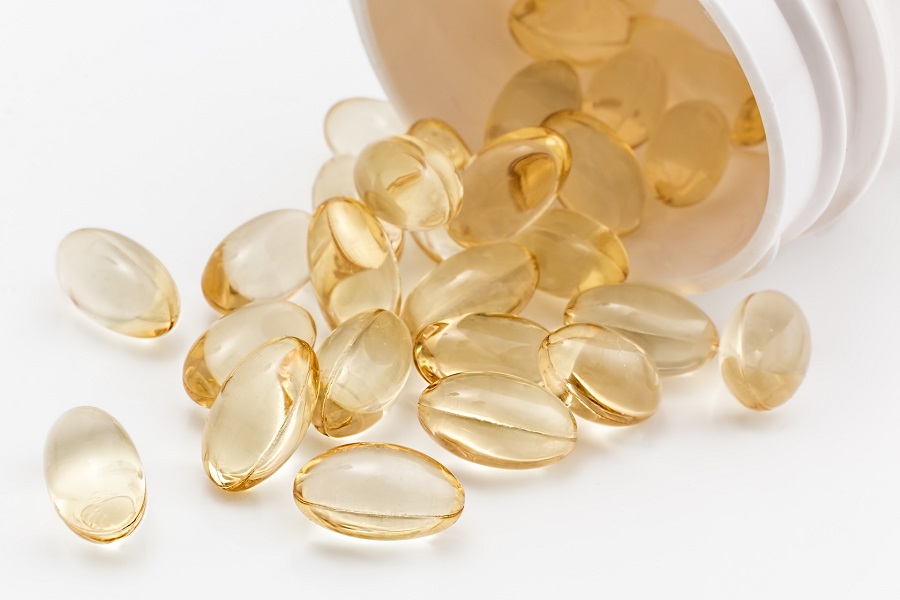The Most Important Supplement
If I had to recommend the most important supplement to you, and I could not recommend more than one, it would be vitamin D3 combined with K2.
Isn't that two vitamins?
Yes it is, but I am cheating slightly and what I am recommending here is that you get a product that contains both vitamin D3 and K2. However, I’m not really cheating because I said that I would recommend one supplement…and even though it contains two vitamins, it is still only one supplement.
What are the Benefits of Vitamin D3
1. Vitamin D3 is a natural anti-inflammatory and this can lead to many problems, such as joint pain and intestinal issues.
2. Vitamin D3 is great for improving one’s mood and is especially good for staving off depression.
3. This vitamin is an excellent supplement for hair and skin – it is also thought to contribute to anti-ageing.
4. Because cancer is known to invade areas of inflammation within the body, vitamin D3 is though to be an excellent supplement to help avoid cancer.
5. Vitamin D3 is known to help maintain a healthy blood pressure.
6. Vitamin D3 can help with heart health.
7. Vitamin D3 is massively important to helping our immune system and being low in this vitamin leaves us open to infections – such as viral and bacterial.
8. Vitamin D can help us with our weight loss goals.
What are the Benefits of Vitamin K2
1. Vitamin K2 looks for calcium that has been deposited in the wrong places – such as your heart and your arteries. It collects this calcium and distributes it into the bones and teeth.
2. Vitamin K2 can help with our fitness levels, so that we can perform better during exercise.
3. Vitamin K2 helps us to maintain a healthy metabolism.
4. This vitamin prevents bone loss, which is especially important in seniors.
How to Spot a Vitamin D3 deficiency
1. High blood pressure can sometimes be an indicator of low vitamin D levels and is worth checking with a simple blood test.
2. Unexplained lower back pain can suggest that a person is deficient in vitamin D3.
3. High blood sugar (prediabetes and/or insulin resistance) can often start with low vitamin D levels.
4. Virus susceptibility can often indicate low vitamin D and if you know anybody who always has a cold, it might be worth suggesting that they take some vitamin D.
5. There are more autoimmune disorders than I can mention here, but examples such as M.E. (chronic fatigue), fibromyalgia, pancreatitis and digestive issues can possibly stem from a low level of vitamin D.
6. If you wake up feeling sleepy, it would be sensible to check the vitamin D levels with a simple blood test.
7. Depression is a huge area of study, but low levels of vitamin D are known to contribute to bouts of depression.
What Dose of Vitamin D3 and K2 should I take?
If you live in the northern hemisphere, you don’t get enough exposure to the sun and exposure to the sun is the only real way that we can raise our vitamin D levels. Aperson with fair skin should aim to get fifteen minutes of sun exposure as often as possible (without burning of course). People with darker skin require more exposure – up to forty five minutes in some cases.
For the record, if you aim for a minimum of 1000iu of vitamin D3 (not D2), you will be lowering chances of getting a chest infection by 50% and you will also be lowering your chances of contracting pneumonia by 70%. For K2, you want to be taking 100 micrograms for every 10,000iu of vitamin D. I personally take a supplement that contains 4000iu of vitamin D3 and 100 micrograms of vitamin K2 and this is perfect for me.
Please note that it is extremely difficult for the body to absorb vitamin D3 from food alone.
Vitamin D Tips:
1.Vitamin D3 is a fat soluble vitamin, so it is best taken with or shortly after food – especially food that contains fat.
2. Taking vitamin D is a must and once a day is perfect. However, studies indicate that it might be even more beneficial to take a larger dose once per week for example.
3. You should not take more than 10,000iu of vitamin D3 or else you might end up with too much calcium in your body. I would recommend 10,000iu or less per day.
4. Vitamin D2 is only prescribed by doctors and cannot be purchased in the shops. Without going into detail, it is not as good as D3 anyhow.
And that is why I believe that vitamin D3 is the most important supplement that I can recommend!
In this short video, Doctor Berg discusses the seven warning signs of a Vitamin D deficiency. Clearly vitamin D3 is the most important supplement.



